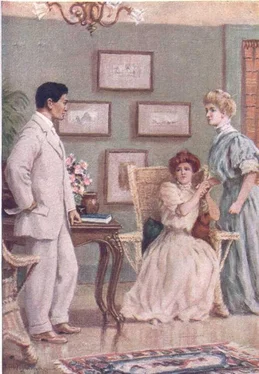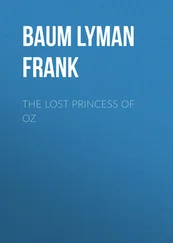L. Baum - The Last Egyptian
Здесь есть возможность читать онлайн «L. Baum - The Last Egyptian» весь текст электронной книги совершенно бесплатно (целиком полную версию без сокращений). В некоторых случаях можно слушать аудио, скачать через торрент в формате fb2 и присутствует краткое содержание. Год выпуска: 2019, Издательство: epubBooks Classics, Жанр: Прочие приключения, на английском языке. Описание произведения, (предисловие) а так же отзывы посетителей доступны на портале библиотеки ЛибКат.
- Название:The Last Egyptian
- Автор:
- Издательство:epubBooks Classics
- Жанр:
- Год:2019
- ISBN:нет данных
- Рейтинг книги:4 / 5. Голосов: 1
-
Избранное:Добавить в избранное
- Отзывы:
-
Ваша оценка:
- 80
- 1
- 2
- 3
- 4
- 5
The Last Egyptian: краткое содержание, описание и аннотация
Предлагаем к чтению аннотацию, описание, краткое содержание или предисловие (зависит от того, что написал сам автор книги «The Last Egyptian»). Если вы не нашли необходимую информацию о книге — напишите в комментариях, мы постараемся отыскать её.
The Last Egyptian — читать онлайн бесплатно полную книгу (весь текст) целиком
Ниже представлен текст книги, разбитый по страницам. Система сохранения места последней прочитанной страницы, позволяет с удобством читать онлайн бесплатно книгу «The Last Egyptian», без необходимости каждый раз заново искать на чём Вы остановились. Поставьте закладку, и сможете в любой момент перейти на страницу, на которой закончили чтение.
Интервал:
Закладка:
“I thank you,” replied the Egyptian.
As they proceeded down the river, Kāra noted the spotless tunics and trousers of the Arabs, who one and all regarded “the dirty Copt” with open contempt. He also examined intently the Englishman’s dress. When the boat tied up at Assyut to allow Winston to visit a friend who was convalescent at the excellent hospital maintained there, Kāra walked through the bazaars, and returned to the dahabeah bearing several bulky packages.
That night he bathed in the river while the others all lay asleep. Afterward he stealthily transferred the contents of his turban to a chamois bag, which he fastened around his neck. Then he flung the old burnous and the turban overboard.
In the morning they found the Egyptian transformed. He wore an English shirt, with collar and necktie all of white, loose linen trousers that were gathered at the ankles in Arab style, and over these a flowing white burnous of spotless purity. Upon his head was a red fez; upon his feet red slippers from Algiers; about his neck hung the massive chain of the kings; upon his finger was his grandmother’s ring set with the scarab of Ahtka–Rā.
Winston was astonished, and gazed upon the Egyptian with approval. Then his eye caught the chain, and he uttered an exclamation of wonder.
“Where did you get it?” he asked, clutching at the chain to examine one of its exquisitely engraved links.
“It is also a part of my inheritance, but an heirloom that I dare not part with,” returned Kāra. “It is the record of the kings, my ancestors, from Mēnēs to Ahtka–Rā,” and he explained the meaning of the chain to Winston, and assisted him to decipher some of the inscriptions upon the heavy links.
“But this is a priceless treasure!” exclaimed the savant, filled with unbounded amazement at what he beheld.
“It is proof of my contention that I am of royal blood,” answered the other, proudly. “While I live I will not be separated from it.”
“You are right,” agreed Winston, promptly; and from that moment he entertained a new respect for this humble descendant of the ancient rulers of Egypt.
Not one of the manuscripts mentioned Ahtka–Rā; but the chain had at its end the link of that astute leader of men, and his identity was thus established beyond a doubt. The scarab, of unquestionable antiquity, was likewise a proof that Kāra’s ancestor was a descendant of kings. Immediately the young Egyptian became a person of consequence.
Kāra now smoked cigarettes, having purchased several boxes at Assyut. This was the most satisfactory luxury that attended his new condition, and conspired, more than anything else, to render him pleased with his lot.
The dahabeah arrived in Cairo on the morning of the fourth day.
Winston at once took a carriage and drove Kāra to the bank, where he placed the sum agreed upon to the young Egyptian’s credit. Kāra, who wrote English in a clear and delicate hand, was given a cheque book and registered his signature as follows: “Prince Kāra.”
“Residence?” inquired the banker.
“I have just arrived, and am not yet located,” was the answer. “To–morrow I will send you my address.”
“Let me also know where you are to be found,” said Winston, “for I must introduce you to the Egyptologists here.”
Then he left his new acquaintance to drive post haste to the museum, there to show his new–found treasures to his many friends.
Chapter VII
A Step Toward the Goal
Kāra wandered about the streets. Cairo is a marvel to the most blasé traveler; it could not fail to impress an inexperienced native. But the Egyptian masked the astonishment under an expression cold and reserved and a manner dignified and undemonstrative. No one must suspect he was fresh from the desert and the Nile country. The shops of the jewelers especially attracted his attention, and he stopped many times to examine the splendid gems displayed in the windows. Some were priced, and he wondered at their value. It is said that no capital in the world contains so many rare and costly gems as Cairo.
In the evening he crossed the great bridge of Isma’il Pasha to the island of Gizireh, staring at the procession of carriages, camels, automobiles and donkeys that at twilight followed on one another’s heels. In the carriages and automobiles rode Syrians, Turks, Copts and Arabs, clothed in conventional European dress, save for the red fez everywhere prevalent. The burnous and native dress had been abandoned by these aristocrats, and this met with Kāra’s full approval. He was not averse to innovations upon the ancient customs in which he had been reared. If the dominant people of his country and age were English, then the manners and customs of the English should be adopted by those who wished to compete with them in importance.
Also he began to understand that it is more dignified to ride than to walk. At Gizireh he hailed a carriage and in it returned across the bridge, avoiding the dust and heat and mingling with a procession of beautifully costumed women and handsomely dressed men. His own costume was poor enough in comparison, but his magnificent chain drew the eye of more than one curious observer.
And now Cairo was ablaze with lights, and the population seemed gathered upon the sidewalks before the cafés and restaurants. Kāra discovered that he was hungry. He dismissed his carriage and seated himself at one of the outdoor tables, ordering liberal refreshment. Opposite him sat a young English girl with a vacant–faced man for escort. Kāra, as he ate, examined this girl critically, for she was the first of her class he had seen at close range. Her dress was dainty and beautiful; but she was not fat at all. She was vivacious, and talked and laughed with unrestrained liberty. She seemed to imagine herself on an equality with the man beside her, who, despite his inanity, was still a man. Altogether, Kāra was disappointed in her, although his grandmother had warned him that the training of European women imbued them with peculiar ideas, to which he must defer in his association with them.
As he watched the girl, Nephthys rose several degrees in Kāra’s estimation. Nephthys was certainly

In the evening he crossed the great bridge of Isma’il Pasha to the island of Gizireh
fat and soft of flesh, and she did not talk much. The possession of such a woman was quite desirable, and perhaps he had not paid an extravagant price for Nephthys after all. These independent, chattering Western women must be tolerated, however, until he had accomplished his mission; so it would be well to begin at once to study their ways.
Presently someone touched his shoulder familiarly, causing Kāra to shrink back with an indignant gesture. Tadros, the dragoman, stood smilingly beside him, more gorgeously arrayed than ever. Tadros was in an excellent humor. He had not been obliged to take his roll of papyrus to the museum for a market, but had disposed of it to a private collector for a price far exceeding his expectations, which had not been too modest. Altogether he had made an excellent trade, and there might be other pickings in this unsophisticated fellow–townsman of his, whose very presence in Cairo was warrant that he had money to part with.
Before accosting Kāra the dragoman had observed the change in his appearance and demeanor. The former recluse was no longer disgustingly filthy, but seemed clean in person and was gowned in a snowy and respectable burnous. The objectionable turban had given place to the fez; the red slippers were of excellent morocco. Best of all, the chain around his neck was rich and heavy and of remarkable workmanship. Kāra was not only presentable, but his manner was dignified and well bred.
Читать дальшеИнтервал:
Закладка:
Похожие книги на «The Last Egyptian»
Представляем Вашему вниманию похожие книги на «The Last Egyptian» списком для выбора. Мы отобрали схожую по названию и смыслу литературу в надежде предоставить читателям больше вариантов отыскать новые, интересные, ещё непрочитанные произведения.
Обсуждение, отзывы о книге «The Last Egyptian» и просто собственные мнения читателей. Оставьте ваши комментарии, напишите, что Вы думаете о произведении, его смысле или главных героях. Укажите что конкретно понравилось, а что нет, и почему Вы так считаете.












